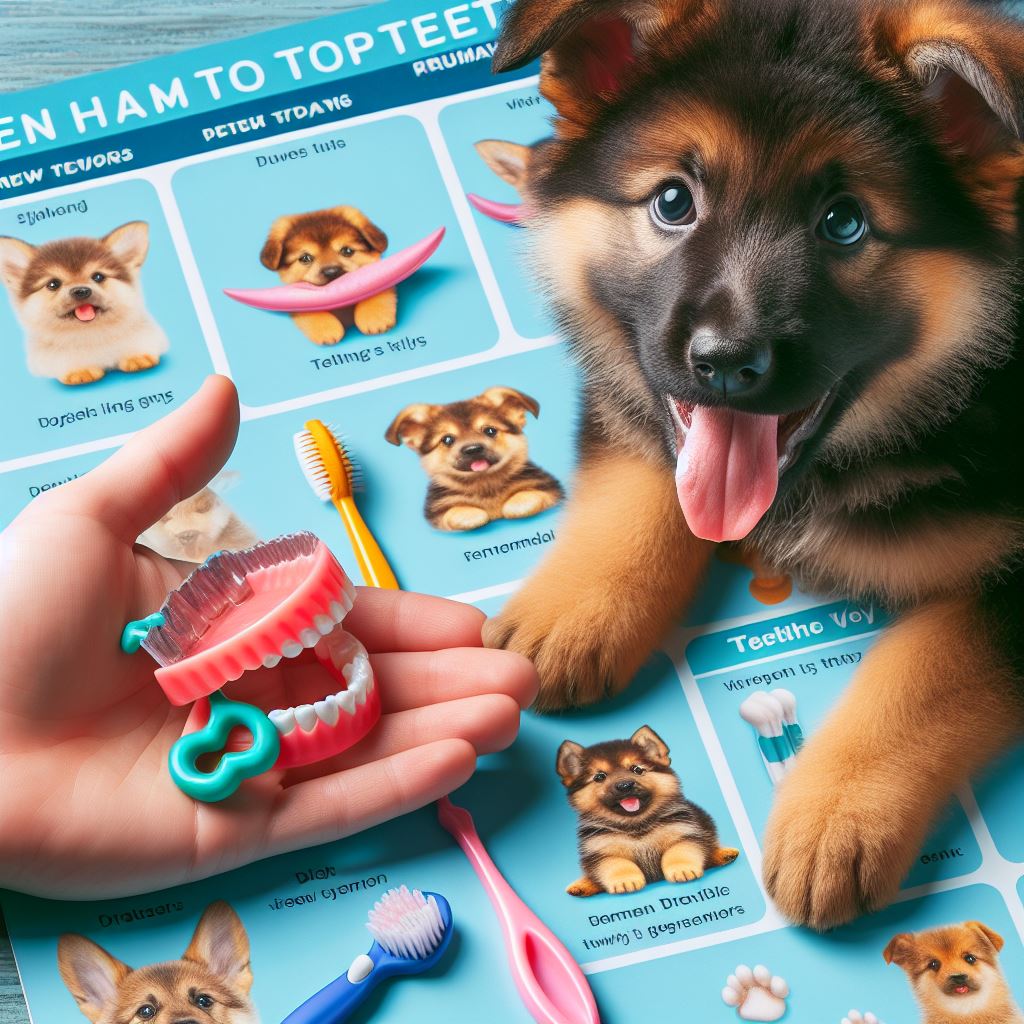Introduction:
Renowned for their loyalty and intelligence, German Shepherds go through several growth phases as they mature from puppies to adults. The teething stage is one important stage that owners need to be aware of. It’s possible to protect your German Shepherd’s health and wellbeing by knowing when teething stops and how to handle this stage.
The Teething Timeline:
German Shepherd puppies start to lose their baby teeth as adult teeth erupt during the teething period, which usually begins at 3 to 4 months of age. They go through this procedure until they are about six or eight months old. In order to give the right support and care, it’s important to recognise the symptoms of teething, which include excessive chewing, drooling, and irritability.
Managing Teething Discomfort:
Puppies may exhibit painful behaviours during teething, such as gnawing on objects to ease their discomfort. Give your German Shepherd puppy chew toys made especially for teething to help ease this discomfort. These toys can reduce harmful chewing behaviour while also relieving pressure on their gums.
Dental Care During Teething:
In order to guarantee that your German Shepherd’s adult teeth erupt properly and that their gums stay healthy during the teething stage, proper dental care is crucial. To avoid plaque accumulation and maintain oral hygiene, brush your puppy’s teeth on a regular basis using toothpaste and a toothbrush designed specifically for dogs. Furthermore, by arranging for regular veterinarian examinations, you may guarantee that any tooth problems are immediately resolved.
Providing Suitable Chew Options:
Provide a selection of sturdy and safe chew toys to your German Shepherd puppy to help ease the discomfort of teething and deter destructive chewing. Choose toys made especially for teething puppies, making sure the pieces are tiny enough not to choke on. To keep your puppy happy and interested, rotate toys on a regular basis.
Implementing Positive Reinforcement:
Use positive reward methods to reroute your puppy’s chewing habits to suitable objects. Reward your German Shepherd with food or verbal praise if you catch them chewing on a toy that has been authorised. Maintaining consistency is essential for encouraging positive behaviour and squelching negative ones.
Practicing Dental Care:
Include routine dental care in your puppy’s regimen to support dental health as they go through the teething process. To gradually acclimatise your puppy to this grooming activity, start brushing using a toothbrush made specifically for dogs and toothpaste. Try to wash your teeth at least once a day to keep your gums healthy and prevent plaque formation.
Monitoring for Potential Issues:
Keep a close check on your German Shepherd puppy’s teething development and be alert for any indications of potential problems, such displaced baby teeth or inflamed gums. See your veterinarian right away for an assessment and suitable action if you observe anomalies or chronic discomfort.
Through a thorough comprehension of the teething phase in German Shepherds and the application of proactive management techniques, you can confidently navigate this developmental milestone and guarantee the welfare of your puppy. You may create a solid relationship based on mutual respect and trust with your German Shepherd and assist them in making a seamless transition into adulthood with patience, consistency, and appropriate care.



